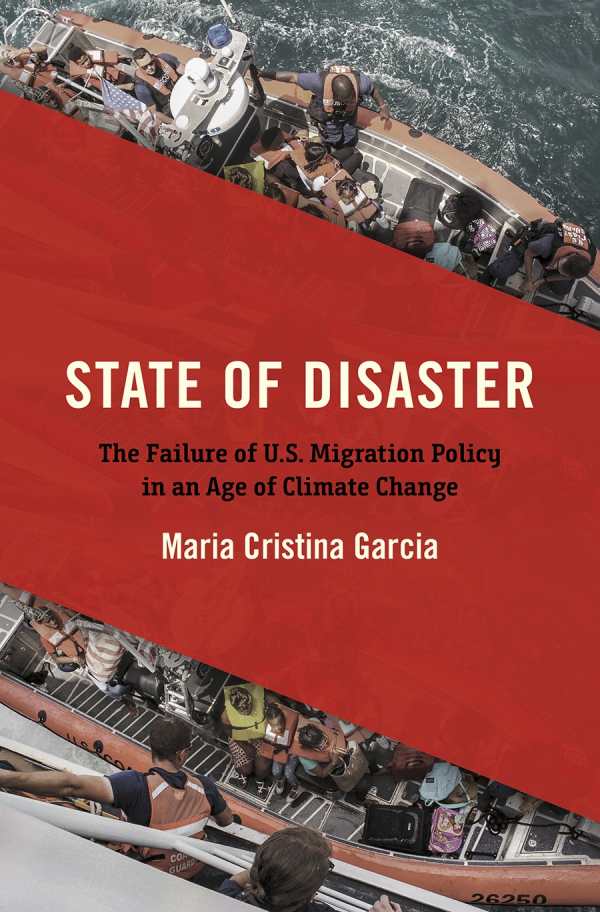State of Disaster
The Failure of U.S. Migration Policy in an Age of Climate Change
The situation is stark: those in less developed countries are “twenty times more likely to be affected by climate-related disasters.” In her forthright work of research and witness, State of Disaster, Maria Cristina Garcia considers post-1995 Caribbean and Central American environmental crises and climate refugees.
Garcia, an expert on human migration, addresses how the more frequent and severe natural disasters that climate change promises will impact those in developing countries. As an illustration, the book investigates several incidents from contemporary history: recurring volcanic eruptions in Montserrat; Hurricane Mitch in Honduras and Nicaragua; and Hurricanes Irma and Maria, which hit Puerto Rico and the US Virgin Islands in 2017.
The scale of these disruptions is hard to fathom. By 1998, several years into a fifteen-year string of volcanic eruptions, three-quarters of the population of the British overseas territory of Montserrat had evacuated; by 2005, two-thirds of the island was deemed uninhabitable. Hitting Central America in 1998, Hurricane Mitch’s death toll was estimated to exceed 1,500.
The book studs such arresting statistics in a dense substrate of history, politics, and economics—somewhat challenging for its profusion of dates and acronyms. Garcia exhibits dogged dedication to details on the specific episodes, yet also treats them as representative of a burgeoning trend. Black-and-white photographs and maps ground them in the recent past.
Ironies abound here: Puerto Ricans are US citizens, yet post-hurricane Puerto Rico was not eligible for full economic assistance; “Temporary Protected Status” is available for victims of environmental disasters, but only those already in the US—a tenuous support.
Surveying a hazardous future, Garcia prescribes an end to neocolonialism, as well as the institution of solid humanitarian policies to assist climate refugees. State of Disaster is a learned and fervent exposé that holds out hope that impacts can “be minimized with strategic planning, sustainable practices, and responsible, accountable, and transparent governance.”
Reviewed by
Rebecca Foster
Disclosure: This article is not an endorsement, but a review. The publisher of this book provided free copies of the book to have their book reviewed by a professional reviewer. No fee was paid by the publisher for this review. Foreword Reviews only recommends books that we love. Foreword Magazine, Inc. is disclosing this in accordance with the Federal Trade Commission’s 16 CFR, Part 255.

